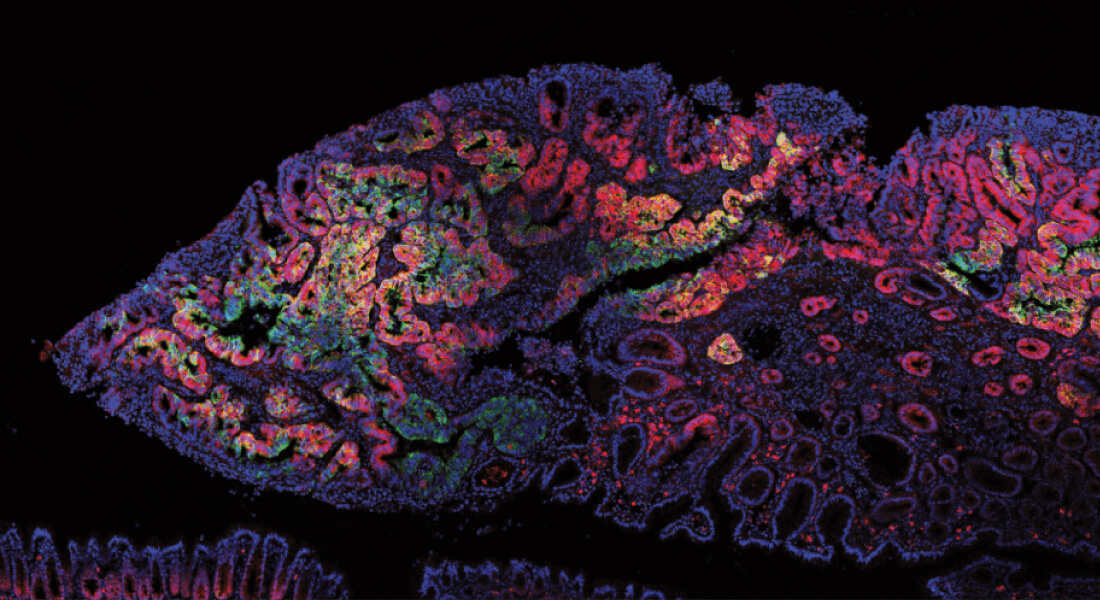Dormant tumour cells use a differentiated cloak to hide from treatments
Four in every 100 people will develop colorectal cancer and although early diagnosis and better treatments now provide better prognoses 1,300 patients die annually from the disease in Denmark. A better understanding of the disease is likely to promote the development of even better treatments.
A group of scientist led by Professor Kim Bak Jensen from the Novo Nordisk Foundation Center for Stem Cell Medicine, reNEW, at the University of Copenhagen has over the last years analysed a great number of colon tumours aiming to understand how some tumour cells avoid dying upon treatment with chemotherapies. The meticulous analysis allowed them to show that like the normal tissue, colon tumours contain areas with cells showing hallmarks of not dividing and expressing markers of terminal differentiation. Such cells are typically lost from the tissue within a couple of days.

“To our big surprise and in stark contrast to healthy cells, we observe that these seemingly postmitotic and terminally differentiated tumour cells efficiently form organoids in vitro and also form tumours, when transferred into animal models” explains Pawel Schweiger, who is the first author of the study.
Further analyses revealed that tumour cells respond to the signals that normally push them to a differentiated state, however, the transition is fully reversible. This means that traditional therapies targeting rapidly dividing tumour cells will not remove these cells as they are largely dormant and can begin to divide again, when exposed to a supporting microenvironment. Characterisation of dormant tumour cells showed that the tumour cells make these important microenvironmental components. By blocking the signals from the environment tumour cells become sensitive to a signal promoting terminal differentiation and block their ability to regrow the tumour.
“We believe that these finding could provide insights into new therapeutics that promote differentiation and thereby prevent the role of these cells in continuous tumour growth” says Professor Kim Bak Jensen.
The study 'Extracellular matrix interactions provide tumor cells with an escape mechanism for commitment to differentiation' was published in the journal Gastroenterology.
The research has received support from the Danish Cancer Society, Worldwide Cancer Research, the European Research Council and the Novo Nordisk Foundation.
Topics
Contact
Professor Kim Bak Jensen
+45 23 81 14 54
kim.jensen@sund.ku.dk
